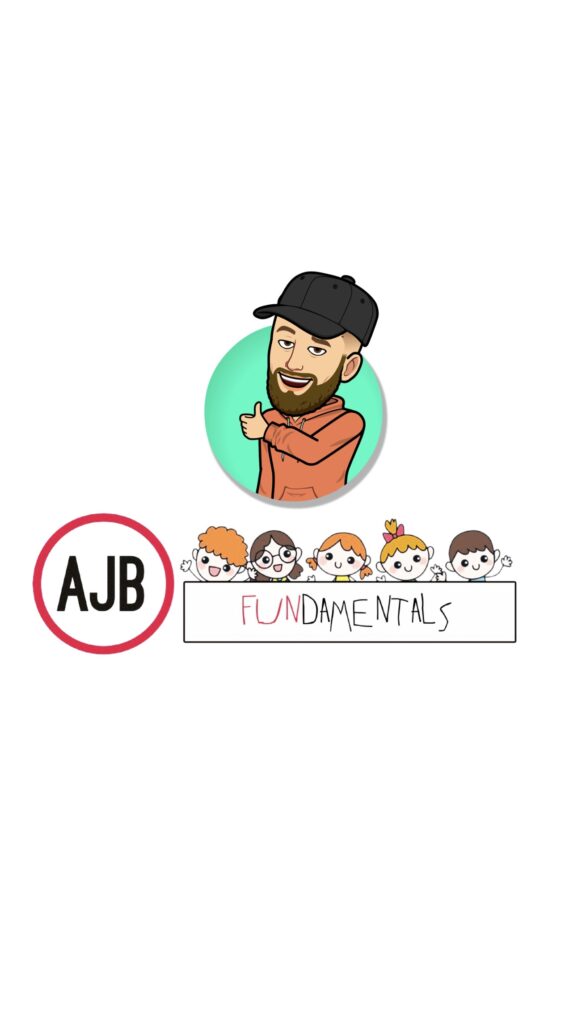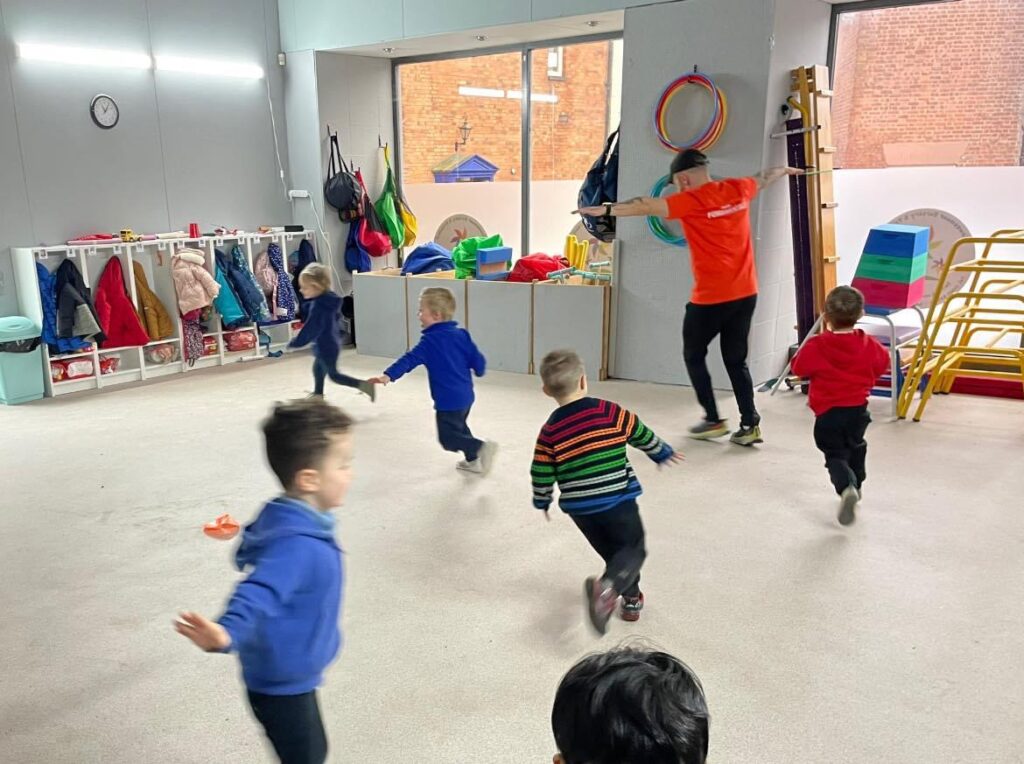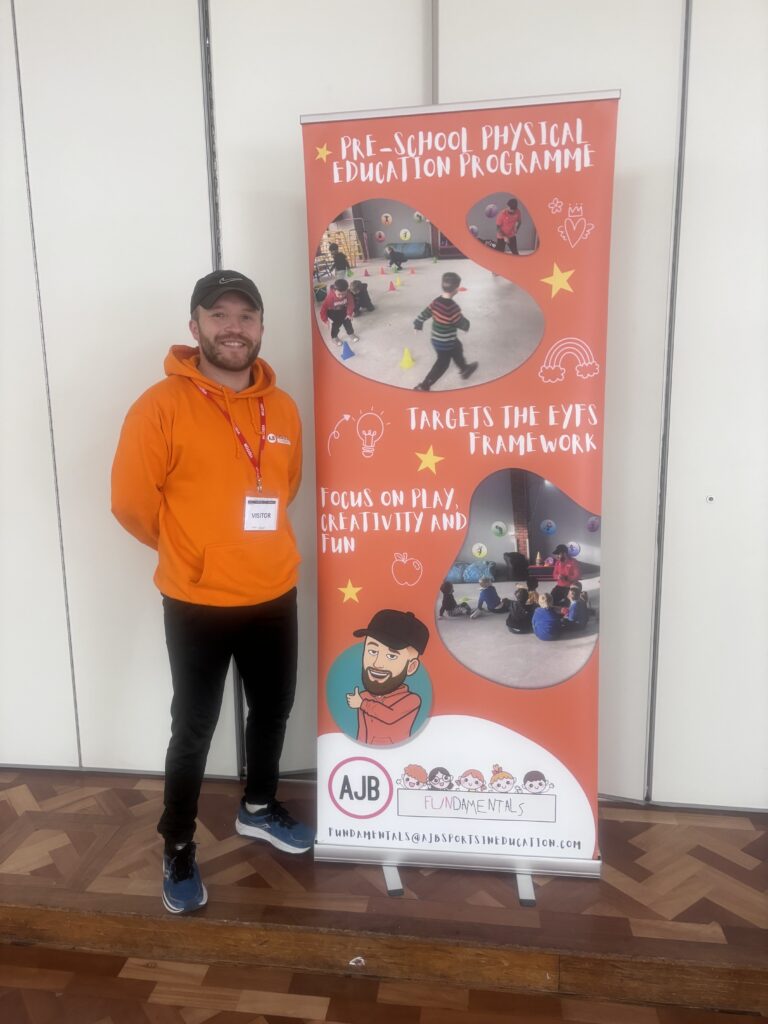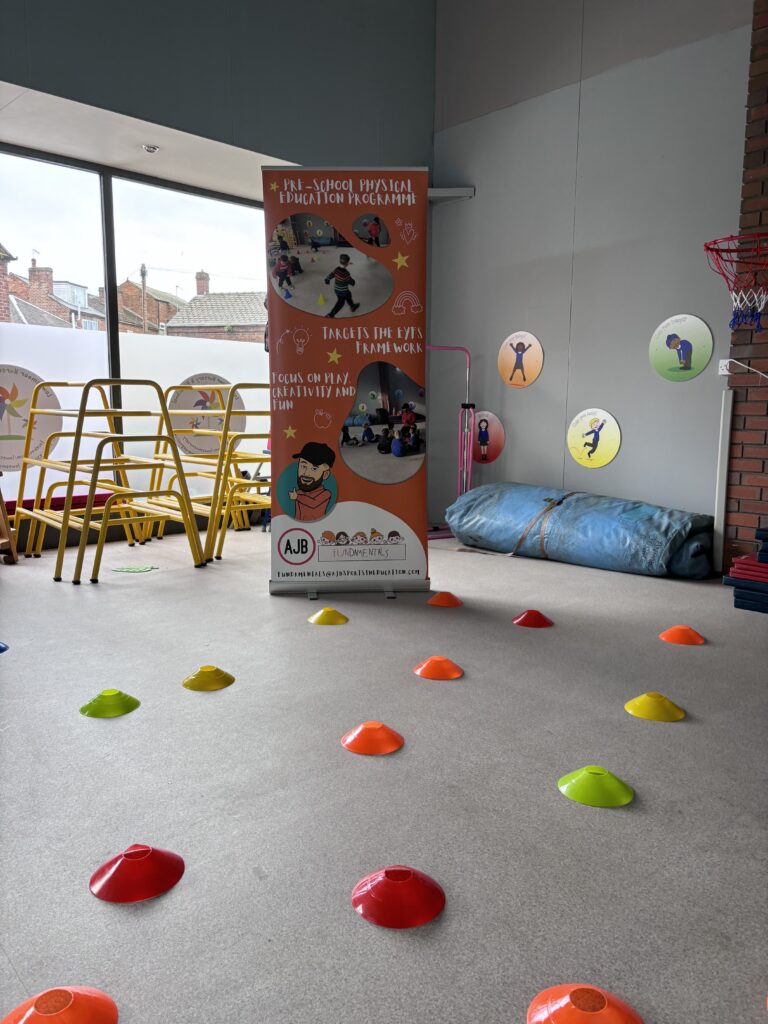
Building positive attitudes to sport and physical activity in children from an early age can help them to feel more motivated, confident and able to get active throughout their life.
Sport England
AJB Sports in Education is proud to introduce our Early years programme: AJB FUNdamentals. A fun, enjoyable and game based creative way to introduce physical activity and PE lessons to pre-school aged children.
We feel it is important to start early in order to create a positive relationship between physical activity, playing sport and having fun.
What better way to do that than by playing fun, physically active games where you can pretend to be a silly monster, mega superhero, agile jungle animal or a marauding pirate (to name just a few)!

Targeting the EYFS Framework
Although our fun lessons are focused on exactly that – FUN, they are specifically designed to target the EYFS framework.
All lessons use fun, engaging games and activities while systematically targeting different elements of the EYFS Framework.
This can vary between:
- Developing their overall physical literacy
- Fine Motor Skills
- Gross Motor Skills
- Negotiating space and obstacles
- Balance and Coordination
- Hand-Eye coordination
- Building relationships
- Building confidence
- Self Regulation
Who is AJB Fundamentals for?
AJB Fundamentals is designed for Pre School and Nursery aged children from 2 – 4 years old. It is designed to both introduce physical activity through fun games and play, and also help prepare older children in your setting for their transition into Reception and for what a typical PE lesson might look like.
How does AJB Fundamentals work?
Our DBS checked, qualified, enthusiastic and energetic educators will come to your setting and run fun multi-skill focused lessons for your children. Each lesson can be tailored specifically to your group, with a focus topic and activities which can be edited to match a learning theme that you are currently studying.
Sessions can look different at each of our settings as we work with you to tailor them to your specific group. We recommend sessions be no more than between 30 to 45 minutes (age dependant) per small group to ensure maximum participation and engagement – we usually recommend splitting classes into smaller groups and swapping them over after each time slot.
- Educators will bring their own equipment for the sessions.
- Your staff are encouraged to take part and have fun.
- We provide lesson plans for your educators to repeat and use themselves going forwards.
When are sessions available?
Sessions are available each weekday morning between 9:00am to 11:30am.
How much physical activity should 3-4 year olds be doing?
Pre-schoolers (aged 3 to 4)
According to the NHS, pre-schoolers should spend at least 180 minutes (3 hours) a day doing a variety of physical activities – spread throughout a 24 hour period, including active and outdoor play. The more the better!
The 180 minutes should include at least 60 minutes (1 hour) of moderate-to-vigorous intensity physical activity.
Children under 5 should not be inactive for long periods during waking hours. Watching TV, travelling by car, bus or train, or being strapped into a buggy for long periods are all adverse to a child’s positive health and development.
Children under 5 who are overweight can improve their health by meeting the government’s activity guidelines, even if their weight does not change. To achieve and maintain a healthy weight, they may need to do additional activity and make dietary changes. – NHS Guidelines
Being physically active everyday is important for the healthy growth and development of babies, toddlers and pre-schoolers.
For this age group, activity of any intensity should be encouraged, including light activity and more energetic physical activity. – NHS Guidelines
Physical activities should be integrated into young children’s lives to create a foundation of movement and activity which will be carried with them throughout the rest of their lives.
Physical activities are essential for a child’s development. It helps lay the foundation for an active and healthy life.
Novak Djokovic Foundation
Evidence shows being physically active impacts on progress and achievement. It improves the brain by stimulating growth in the part of the brain responsible for learning and memory. Young people’s ability to concentrate also improves after physical activity.
Youth sport Trust
Interested in learning more? Please fill in the form below and one of our team will reach out to you. Prefer to email us? Email [email protected]






